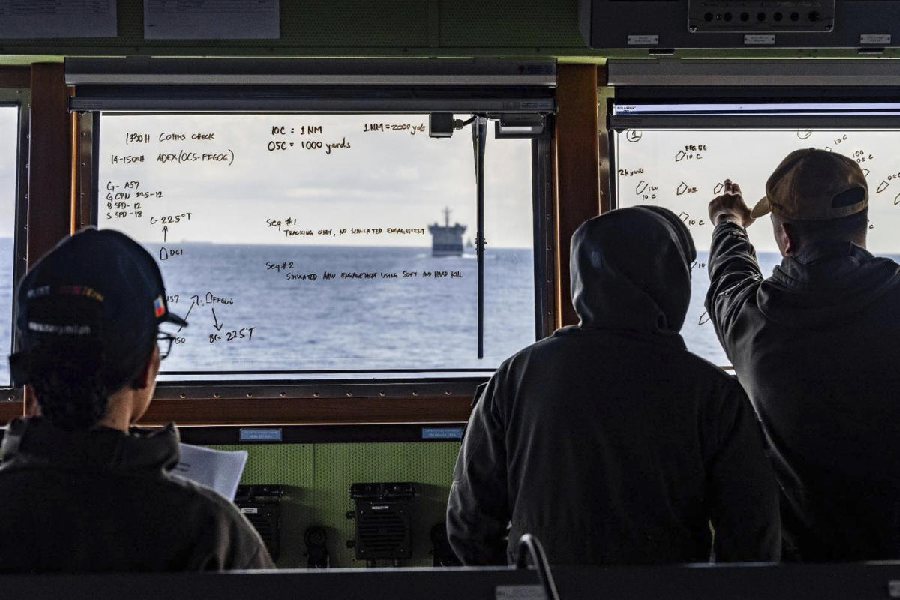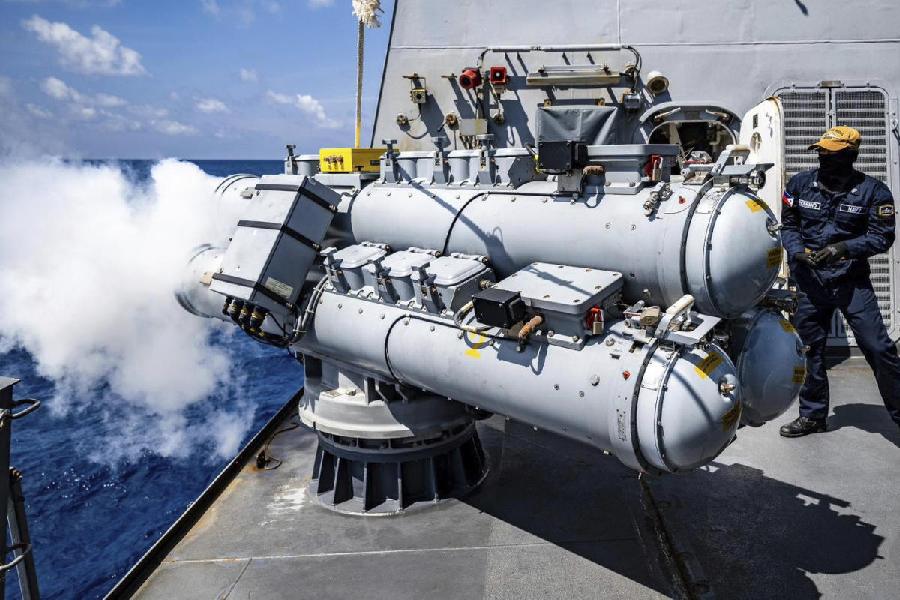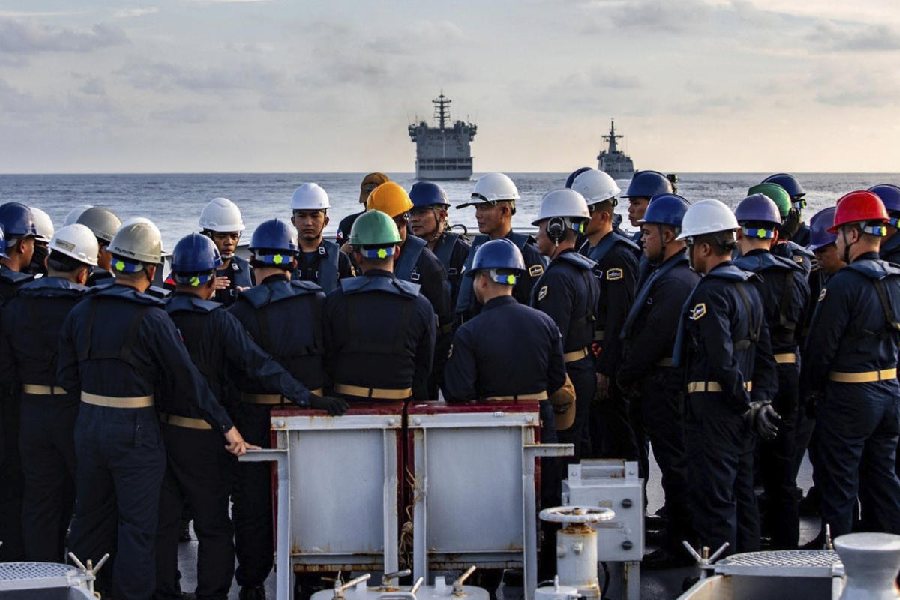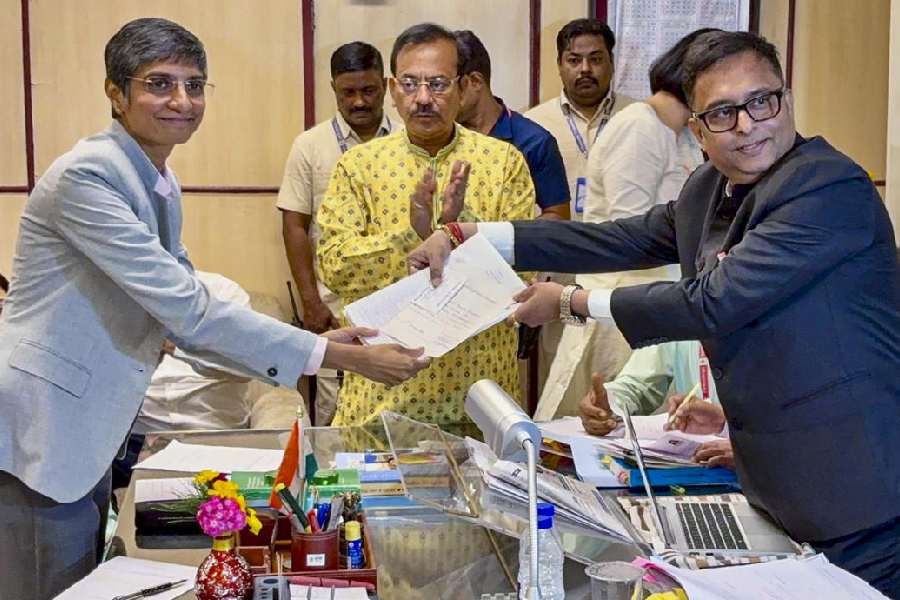 Thursday, 05 March 2026
Thursday, 05 March 2026
 Thursday, 05 March 2026
Thursday, 05 March 2026
India on Tuesday reaffirmed its “clear and consistent” position on the South China Sea, calling it as part of the global commons, and stressed the importance of peace, stability, and freedom of navigation in the region.
The ministry of external affairs (MEA) said India has an “abiding interest” in the area, aligning its views with the United Nations Conventions on the Law of the Sea (UNCLOS).
MEA secretary (east) P. Kumaran made the statement during a special briefing in New Delhi on the ongoing visit of Philippine President Ferdinand R Marcos Jr.

Responding to a query regarding the recently concluded India-Philippines bilateral naval exercise off the Philippine coast, Kumaran said, “We support freedom of navigation and legitimate commerce through the waters of the South China Sea. India has an abiding interest in peace and stability in the region. Our position is based on the UN Conventions of the Law of the Sea. India also believes that any differences between the parties concerned should be resolved peacefully, without resorting to threat or force.”

The response came after China objected to the joint naval drills, stating that no “third party” intervention would be acceptable in the South China Sea.
India and the Philippines on Tuesday elevated their bilateral ties to a strategic partnership after talks between Prime Minister Narendra Modi and President Marcos Jr.
PM Modi said, “We have decided to take our relations to the level of strategic partnership. A comprehensive action plan is also being made to transform this partnership into results. Our bilateral trade is rising constantly, and it has crossed $3 billion. To further strengthen it, our priority is to complete the India-Asean Free Trade Review as soon as possible.”
External affairs minister S. Jaishankar called on President Marcos Jr and said his talks with Prime Minister Modi would “significantly deepen our bilateral partnership.”
The visit of the Philippine President marks the 75th anniversary of diplomatic relations between India and the Philippines.
As part of an ongoing Operational Deployment to Southeast Asia, Indian Naval Ships INS Delhi (Guided Missile Destroyer), INS Shakti (Fleet Tanker), and INS Kiltan (Anti-Submarine Warfare Corvette) of the Eastern Fleet, under the command of Rear Admiral Susheel Menon, Flag Officer Commanding Eastern Fleet (FOCEF), concluded a port call at Manila, Philippines.
The Indian Navy ships participated in a bilateral maritime exercise with the Philippine Navy from August 3 to 4.
The full bilateral exercise spanned from July 30 to August 4. The harbour phase of the exercise, from July 30 to August 2, involved discussions on procedures for exercises at sea and subject matter expert exchanges.
During the sea phase from August 3 to 4, both navies conducted anti-air, anti-surface, and anti-submarine drills.

Officials in New Delhi confirmed that the exercise was held in the “West Philippine Sea,” a term used by Manila to assert its claims in the South China Sea and counter Beijing’s sweeping maritime assertions.
China's state-run Global Times quoted Senior Colonel Tian Junli, spokesperson for the PLA Southern Theatre Command, as saying, “The Philippines has been rallying an external country (India) to interfere in the South China Sea by organising so-called joint patrols, which undermine regional peace and stability.”
He added that the PLA Southern Theatre Command remains on high alert to “resolutely defend national sovereignty and maritime rights and interests.”
China is currently engaged in territorial disputes with five countries, including the Philippines, over the demarcation of boundaries in the hydrocarbon-rich South China Sea.







